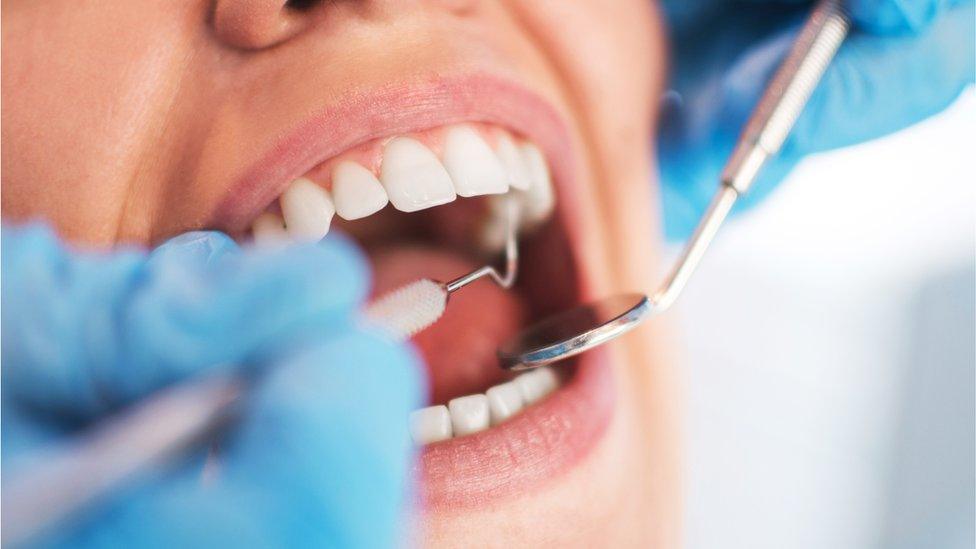Dentists: Minister announces £9.2m in additional funding
- Published
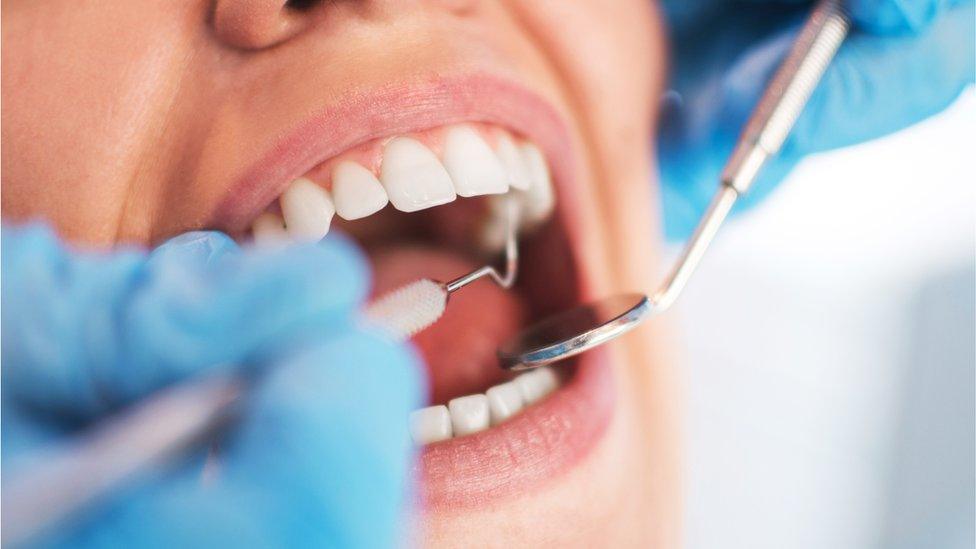
The Health Minister also confirmed a 6% pay uplift for dentists
More than £9m is to be invested in dental services in Northern Ireland.
The funding is aimed at bolstering support for dental practices and protecting public access to health service dental care.
The health minister also confirmed a 6% pay uplift for dentists for the current financial year.
The British Dental Association said the money "falls well short of what's needed" and urged further reform.
In 2022 a BBC investigation found most NHS dental practices in Northern Ireland were not accepting new patients.
The £9.2m investment package for dental services includes:
£1m for newly registered child patients through the reestablishment of the Enhanced Child Examination Scheme. This scheme provides children aged 0-10 who have not been registered with a dentist with an examination, individualised oral health advice and age-specific fluoride application to teeth to assist with preventing dental decay
£4.3m to fund a 30% enhancement to fees paid to dentists for health service fillings, extractions, and root canal treatment for 2024/25. This will support public access to priority treatments
£3.9m for the treatment of high priority unregistered patients through a Dental Access Scheme
The pay increase will be backdated to April 2023 and is in line with the recommendations from the DDRB (Doctors' and Dentists' Review Body).
The uplift comes with a 7.3% uplift to non-staff expenses for 2023/24, with a 3% recurrent award in future years.
Minister Robin Swann said he hopes the money "eases some of the pressures on practices and emphasises the importance of the service being provided".
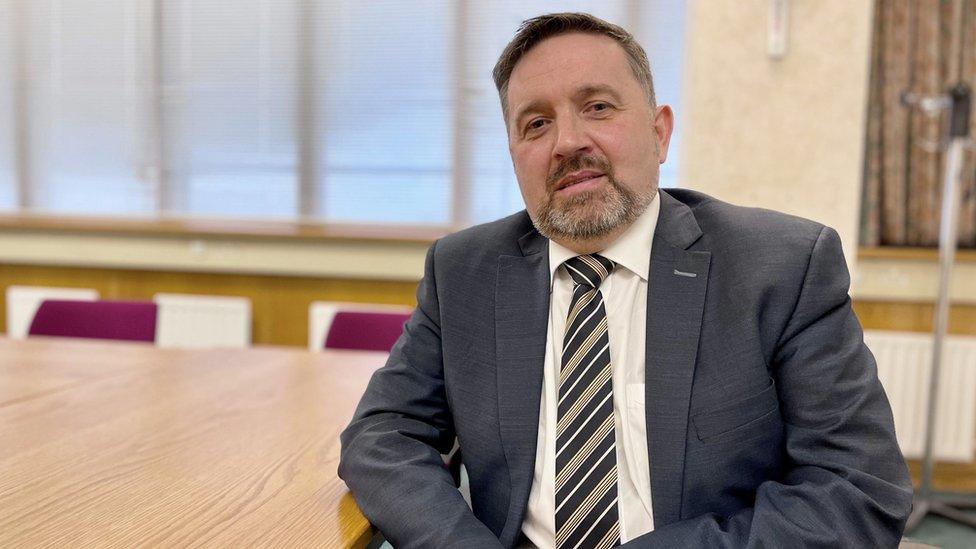
Robin Swann said it was "essential that we have a service that works for both the profession and patients"
Mr Swann said these interventions are designed "to remove some of the barriers that are limiting that access".
"It is essential that we have a service that works for both the profession and patients," he said.
Practices working to an archaic high volume/low margin contractual model already faced delivering some NHS treatments at a loss, and the looming ban on dental amalgam was set to destroy the fragile business model they work to.
Ciara Gallagher, Chair of the British Dental Association's Northern Ireland Dental Practice Committee, said: "We get that this is the best the Minister could do at this difficult time, but it falls well short of what needs to be done."
"Time will tell if it's enough to bring dentistry in Northern Ireland back from the brink."
"Patients are struggling to secure access, and real progress will hinge on real reform and fair funding."
EU amalgam laws
The health minister also provided an update on the proposed changes to the EU laws relating to dental amalgam and his concerns regarding the implications for Northern Ireland.
"These changes would significantly restrict dentists from placing amalgam fillings, increase costs for patients and have a significant impact on the capacity of a service that is still struggling since the pandemic," he said.
Mr Swann said his view remains that a phase down approach in line with the wider UK position, rather than a phase out, of amalgam is in the best interests of patients in Northern Ireland but that is a matter for the new Windsor Framework Democratic Scrutiny Committee to consider in detail, in terms of impacts in Northern Ireland.
He said members of the Stormont Assembly will "wish to consider whether the initiation of the Stormont Brake process is necessary and justified."
The Department of Health has written to the committee to advise of concerns around the significant and persisting impact of the new laws.
Related topics
- Published14 March 2024
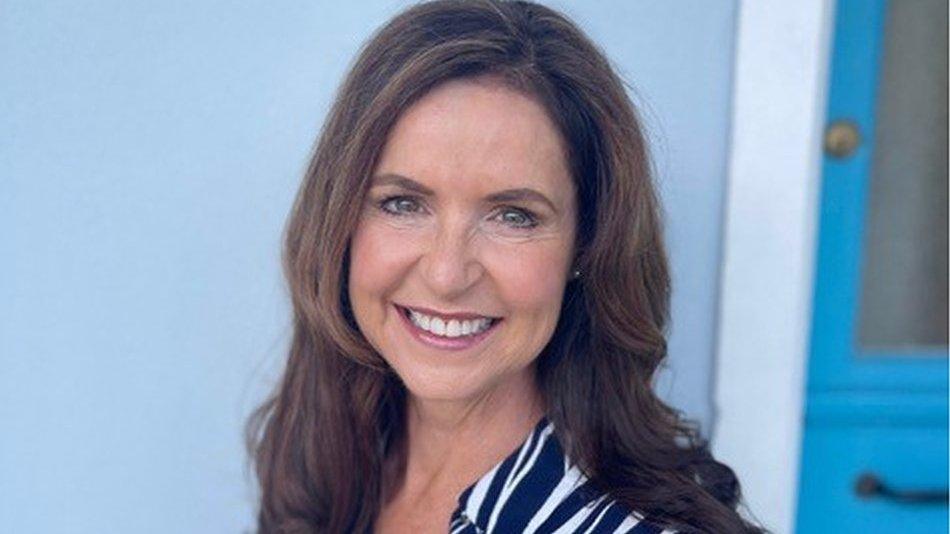
- Published14 February 2023

- Published8 August 2022
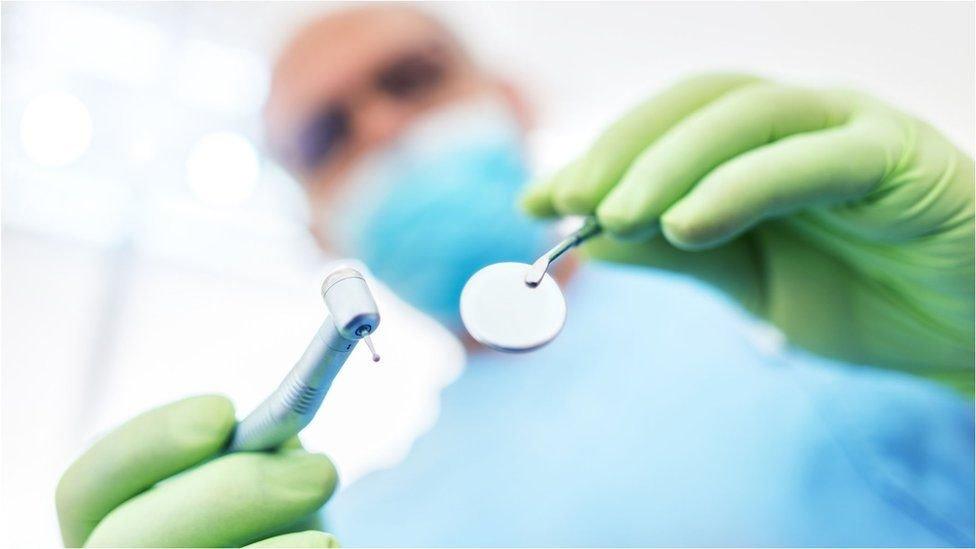
- Published30 January 2024
